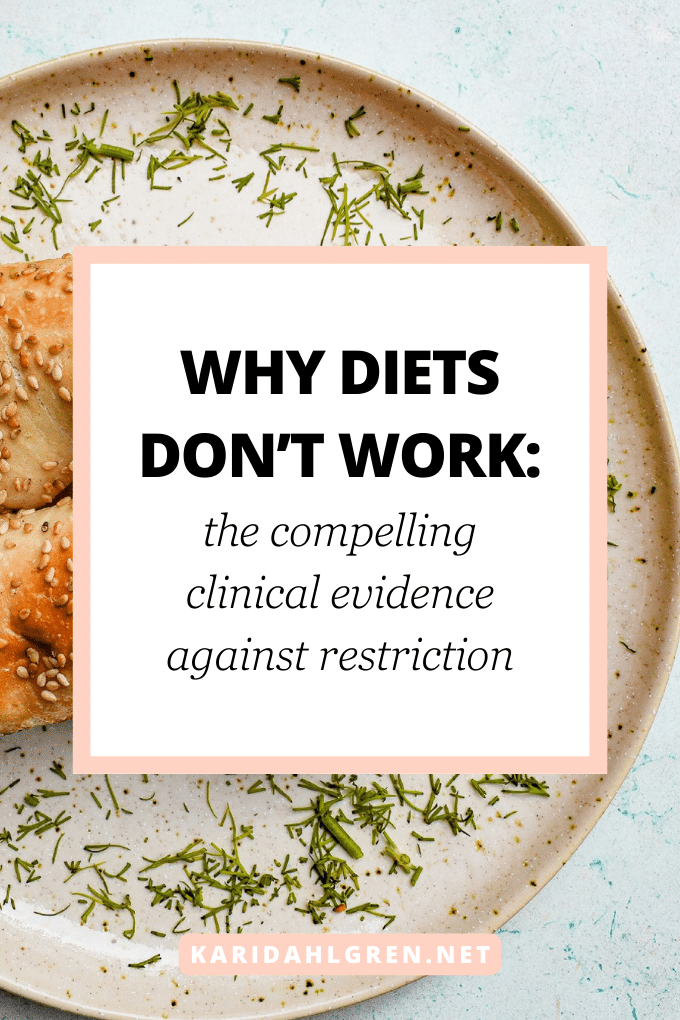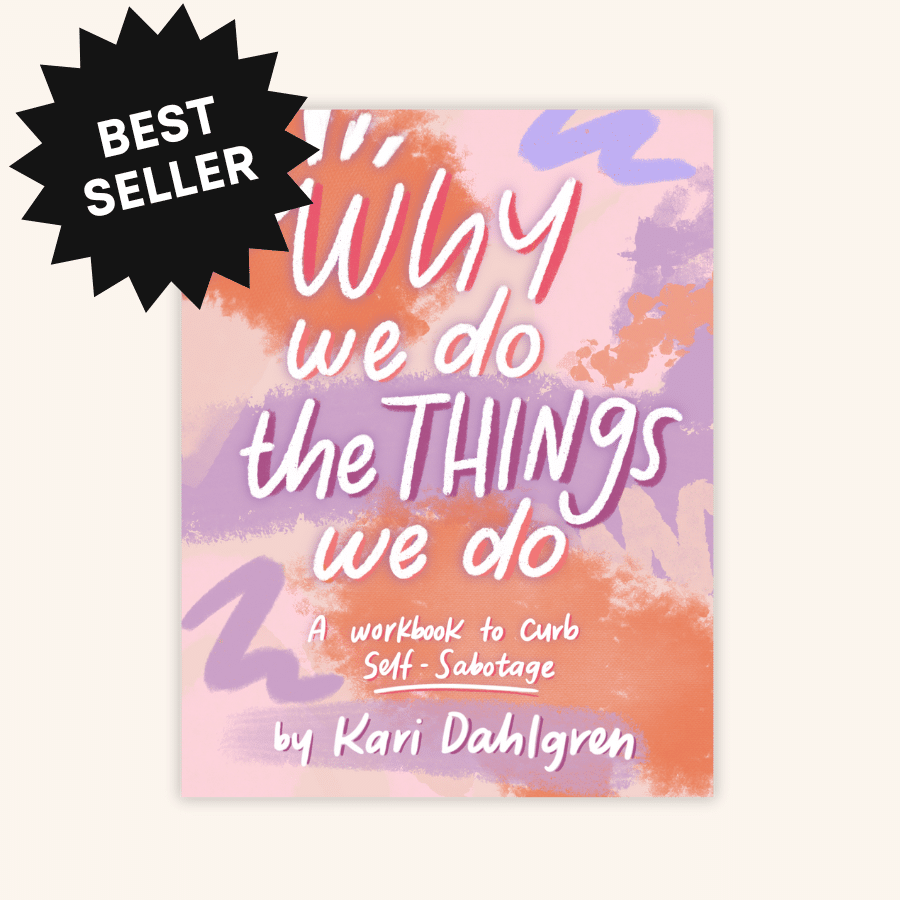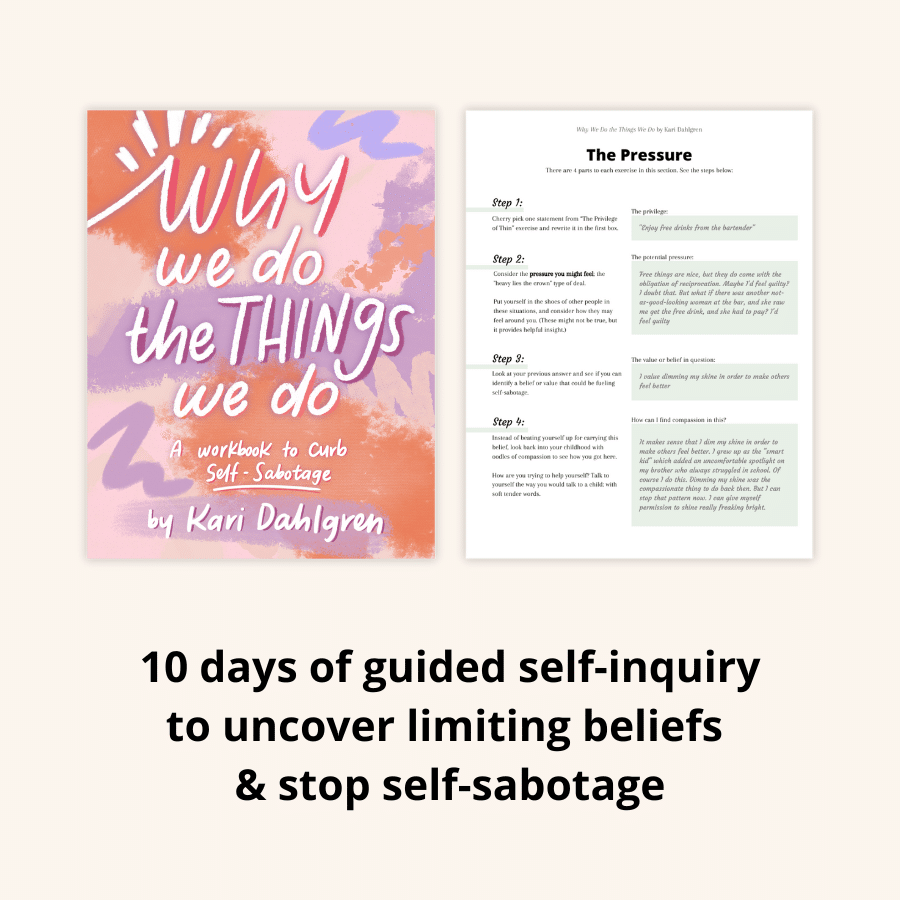
Ever wonder why diets don’t work and always seem to fail, no matter how hard you try? The truth is, diets work against you at almost every turn. Biologically, we’re wired to resist calorie restriction and psychologically, we rebel against food rules.
When your mind and body fight back against dieting, it’s a recipe for weight cycling where weight is lost and quickly regained, leading nowhere. This begs the question: if diets don’t work, what does?
In this article, we’re digging through robust clinical research to unpack the biological and psychological reasons why diets don’t work. I won’t leave you hanging, because at the end, we’ll walk through more effective ways to make peace with food and feel in control again without the need for restrictive diets.
Evidence-Based Reasons Why Diets Don’t Work
Let’s explore how your body’s biology might actually be working against your diet efforts. The struggle to lose weight and keep it off isn’t about a lack of willpower. Instead, it’s rooted in natural biological processes—like hormonal shifts and metabolic adaptation—that make long-term weight loss incredibly difficult.
Here are some compelling evidence-based reasons why diets don’t work:
1. Dieting Changes Our Hormones
When we restrict and limit our food intake, the body attempts to resist change and maintain balance by altering hormones that intensify cravings and make long-term weight loss difficult.[1]
A study published in The New England Journal of Medicine sheds light on why diets often fail to deliver lasting results.[2] It tracked individuals on a 10-week very-low-calorie diet and measured key hunger and metabolism hormones like leptin, ghrelin, and insulin.
While participants lost an average of 13.5 kg, hormone levels shifted in ways that made weight maintenance difficult—ghrelin levels rose, intensifying hunger, and leptin dropped, reducing energy regulation. Remarkably, these changes persisted for a full year after participants stopped dieting, driving the body to regain lost weight and making long-term weight loss hard to sustain.
2. Restrictive Diets Slow Metabolism
Restrictive diets can significantly slow your metabolism, making it harder to lose weight and easier to regain it. When we drastically cut calories, the body adapts by reducing energy expenditure, a phenomenon known as “adaptive thermogenesis.” A study published in the journal Obesity found that metabolic adaptation delays weight loss and makes it harder, even with strict dietary adherence.[3]
A study in the Journal of Clinical Endocrinology and Metabolism found that even though fat-free mass was preserved through diet and vigorous exercise, participants still experienced a significant slowing of their resting metabolic rate.[6] This metabolic adaptation occurred out of proportion to the amount of weight lost, meaning that despite efforts to preserve muscle mass, the body’s metabolism slowed down dramatically.
This is why diet “failure” doesn’t mean that you need more willpower. Even participants who demonstrated strong willpower—by strictly adhering to their diet and exercising vigorously, which isn’t easy while you’re dieting—were met with metabolic changes that stalled progress and increased the likelihood of weight regain.
3. Limiting Food Intake Makes You Hungrier
While it may seem obvious that eating less makes you hungrier, what isn’t obvious is how that affects our long-term behavior. A randomized controlled trial published in the American Journal of Clinical Nutrition explored how dieting affects appetite compared to exercise-induced energy depletion.[7]
In the study, participants experienced a 25% reduction in their daily energy needs either through diet alone or exercise alone, and the results were striking.
Those who restricted their calories through diet alone reported a far greater increase in hunger and desire to eat compared to those who exercised to achieve the same energy deficit.
Additionally, the dieting group showed higher food intake at a buffet meal and reported stronger cravings for snacks. Not only does this demonstrate the restrict-binge cycle, but it also illustrates how eating less causes increases food cravings.
4. Diet-Induced Weight Loss Leads to Weight Regain
Another compelling reason why diets don’t work is because they increase the likelihood of weight regain. The Minnesota Starvation Experiment revealed that during periods of food deprivation, the body undergoes metabolic changes that trigger rapid fat regain once normal eating resumes.[8] This “famine reaction” persists long after dieting, making sustained weight loss difficult.
Furthermore, there are compelling statistics that argue why diets don’t work. According to a review study published in Obesity Reviews, when individuals lose weight through a restrictive diet, one-third to two-thirds of weight lost is regained within a year and almost all is regained within 5 years.[9] But that’s not all. The study also showed that one-third of dieters experience weight overshoot, regaining even more weight than they initially lost.
Psychological Reasons Why Diets Don’t Work
Beyond biology, the psychological toll of limiting your food intake is another key reason why diets don’t work. Recognizing that diet failure isn’t about lack of willpower, but rather deeper emotional and psychological factors, can offer relief and a new perspective on long-term change.
Here are some evidence-based, psychological reasons why diets don’t work:
5. Diets Make You Obsessed with Food
Dieting can increase obsession with food by triggering a psychological response where thoughts about food become more frequent and intense. When we restrict food intake, the brain’s focus shifts toward what we can’t have, often making forbidden foods seem more tempting. This is explained by ironic process theory, which suggests that the more we try to suppress thoughts about something, the more they dominate our mind.
A study published in Eating Behaviors demonstrated that individuals with higher dietary restraint experience more intense food cravings and are more likely to overeat in moments when their self-control is compromised, such as during stressful situations or when faced with tempting food cues.[10] This cycle of restriction, increased focus on food, and eventual overindulgence underscores a significant psychological reason why diets don’t work.
6. Diets Diminish the Essential Joy of Eating
Diets often strip away the inherent joy of eating by forcing dieters to focus solely on restricting intake and following rules, instead of eating foods they actually enjoy. This diminishes the pleasurable aspects of eating, such as sensory experiences, mindfulness, and emotional satisfaction.
The frustrating irony is that many dieters believe avoiding pleasurable foods is necessary to prevent overeating.
However, a scoping review study published in PLoS (Public Library of Science) One found that eating pleasure is strongly linked with healthier eating habits, not the other way around.[11]
In fact, the study found that people who prioritize external control (like dieting) over enjoyment of food often experience less eating pleasure, which can lead to overeating or the consumption of unhealthy, processed foods. Therein lies another compelling reason why diets don’t work: we have poorer eating habits when we don’t eat foods that we actually enjoy.
7. Feeling Deprived on a Diet Leads to Compensatory Eating
Another reason for diet failure—which, again, isn’t necessarily a failure if diets aren’t designed to be successful long-term—is the feeling of deprivation that comes with limiting certain foods. When people are told they can’t have something, the desire for that food often intensifies, creating a psychological craving.
According to a study published in Current Nutrition Reports, this sense of deprivation can trigger food cravings through both physiological and psychological mechanisms, such as thought suppression.[12] The study found that selective food deprivation tends to increase cravings for the very foods being avoided, making it harder to maintain a diet.
8. Avoiding Junk Food Increases Its Allure
Another reason why diets don’t work is that avoiding junk food often increases its allure, making it harder to maintain self-control. According to research published in Eating Behaviors, dietary restraint (the cognitive effort to restrict eating) can backfire, especially in situations where self-control is undermined.[10] Those who try to avoid junk food often end up overindulging when they encounter tempting situations, such as cravings or stress.
Similarly, a study in Frontiers in Psychology found that selective food deprivation, such as avoiding chocolate, increased cravings and led to overconsumption, particularly among those who already had a strong preference for the restricted food.[13] If you’ve ever tried to adhere to a diet that restricted the foods you love—like a carb-lover trying to follow a low-carb, ketogenic diet—the reverse psychology of food rules is a strong driver of diet “failure.”
9. Diets Aren’t Satisfying
Enjoying your food contributes to feelings of satisfaction.[14] While this isn’t a surprise, let’s loop back to the scoping review study that highlighted what happens when we don’t enjoy our food: our eating habits worsen.[11] If you’ve felt full but not satisfied after eating on a diet, that lack of satisfaction could be a key psychological driver behind so-called diet failure.
Furthermore, many people don’t actually feel full on a restrictive diet because they aren’t eating enough. This leads some dieters to search for tips or “hacks” for feeling full on a restrictive diet, which are often misleading at best and harmful at worst. For instance, eating high-volume, low-calorie foods is common tip, but studies have shown that, although you may feel fuller initially, it doesn’t influence hunger or food intake later in the day.[15] This is yet another reason why diets just don’t work.
10. Diets Don’t Address Emotional Eating
Finally, diets often fail to work long-term because they don’t address emotional eating, which drives people to consume food—often hyperpalatable, energy-dense foods—in response to emotions like stress or sadness.[16] Please note that it’s also possible to overconsume healthy food, and emotional eating is not exclusive to sweets and junk food.
A Journal of Health Psychology study further shows that both positive and negative emotions can lead to unhealthy eating behaviors, making emotional eating a complex issue that requires psychological support, not just food restriction.[17]
If Diets Don’t Work, What Does?
The issue with dieting is that it hones the wrong skill—restriction. Our brains are wired to get better at whatever we practice regularly, thanks to neuroplasticity, but focusing on restriction can backfire. Restricting food plays against both our biological instincts and psychological needs, which makes it unsustainable long-term.
Emotional Tolerance
A far more valuable skill than restriction is emotional tolerance, the ability to handle difficult emotions without turning to food. Emotional eating often lies at the core of overeating, and research shows that low distress tolerance, or the inability to manage negative emotions, is strongly linked to overeating and food addiction.[18]
Instead of fighting biology with restriction, working on emotional tolerance is a more effective approach. This is where techniques like my Stop, Drop, & Feel® come in.

This tool asks you to stop when you feel the urge to eat past hunger and drop into your emotions. Unlike urge surfing, which focuses on riding out the urge until it’s gone, the Stop, Drop, & Feel shifts the focus to simply holding space for discomfort—just two minutes at a time. This can be enough to make a difference and build emotional tolerance over time.
With consistent practice, Stop, Drop, & Feel can help interrupt a binge, though that’s a secondary goal. What truly matters is carving out time to sit with uncomfortable emotions and gradually developing the tolerance for them. Over time, this process builds the resilience needed to break free from emotional eating cycles. Studies support that strengthening distress tolerance helps reduce loss-of-control eating.[19]
Intuitive Eating
The next essential skill is interoceptive awareness—the ability to recognize and respond to your body’s internal signals, such as hunger and fullness. This skill is foundational for intuitive eating, which shifts the focus away from external diet rules and toward trusting your body’s natural cues.
Research shows that interoceptive sensitivity, or the ability to accurately perceive these internal signals, is closely linked to intuitive eating and healthier body weight.[20] Other studies show that intuitive eating improve eating habits, metabolic fitness, body satisfaction, psychological well-being, and self-esteem.[21]
Even with all of these benefits, though, intuitive eating can still trigger fear and anxiety—especially a fear of weight gain.

Letting go of dieting can feel intimidating when eating feels out of control, which is a common reason many people begin to diet in the first place. This is why intuitive eating should be adopted at a pace that’s right for you.
Some people can jump in with both feet while others may need to take a step back and focus on emotional tolerance first, to build confidence in their ability to stop at fullness without the need for food rules. With this foundation, you’ll be better equipped to trust your body and rely on its signals, rather than seeking control through restrictive diets.
Reclaiming Control Without Dieting
If you’ve ever felt like no matter how hard you try, diets always seem to backfire, it’s not because you’re lacking willpower—it’s because diets are designed to fight against your body and mind.
Instead of battling biology and obsessing over food rules, there’s a more sustainable path forward. Building skills like emotional tolerance and tuning into your body’s internal signals can shift the focus away from restriction and toward true nourishment.
It might feel unfamiliar at first, but by learning to trust your body and respond to hunger and emotions in a new way, you can finally break free from the exhausting cycle of dieting and feel normal around food again.




I am a sweet binge eater. Can not stop. Tried keto for a while it would then started to binge on sweet keto or not. Help
All the step are listed right in this article 🙂
I can really relate to the article, I have been dieting all my life, every week and ended up binge eating at the end of the week, then cycle of dieting will start again. I am really tired of this trauma, I want to be happy while losing weight. I as scared of eating carbs and wasted a lot of money on diets, shakes, pills you name them. I tried every diet every week even went on keto, banting, Herbalife, once I lose I get motivated but the binge eating does not stop.
I want to be normal, look happier and have a healthy relation around food, manage my portion size and enjoy my meals without being scared of putting on weight. I Also realized that with every diet I didn’t have energy for exercising.
I have recently decided to stop dieting, instead of binge eating every Friday, I decided to eat everything I want in moderate, plan my meals as normal and start living, jog every morning.
I hope this works for me, I’m yet to teach other people about the truth about dieting.
Congrats on taking the brave step of giving up dieting. It’s not easy, and you should be proud!